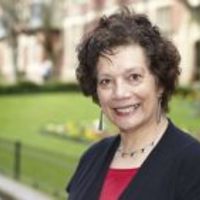
Audrey Osler
Audrey Osler works transnationally. She is Professor Emerita at University of Leeds, where she was founding director of the Centre for Citizenship and Human Rights Education (CCHRE) from 2004. She is also Professor of Education at University College of South East Norway and holds a number of honorary and visiting positions. Her research addresses education policy and specifically issues of social justice, peace and human rights in education and she has a particular interest in questions relating to citizenship, cosmopolitanism, identities and child rights. Other long-term interests include post-conflict education (including Kurdistan-Iraq, Cyprus); globalization and nationalism; multiculturalism; the teaching of history and teachers' lives and careers. She acts as consultant and adviser on citizenship education, development education and human rights education for a number of international bodies, including UNESCO, the Council of Europe, the European Commission, the Fundamental Rights Agency and the British Council.
Current and recent positions include:
2015 Japan Society for the Promotion of Science Invited Fellowship
2013 and 2015 Whiteley Scholar, University of Washington.
2010 Visiting Professor, Utah State University.
2009 - ongoing: honorary research fellow, Hong Kong Institute of Education (HKIED)
2010- 2016: visiting professor Birkbeck, University of London
2007 Visiting Scholar, University of Washington, Seattle.
She has also held academic posts at the University of Birmingham and at the University of Leicester, where she was Chair in Education and director of research from 1999 to 2004.
Email: A.H.Osler@leeds.ac.uk
Books
Osler, A. (2016) Human Rights and Schooling: An Ethical framework for teaching social justice. New York, NY: Teachers College Press. http://store.tcpress.com/0807756768.shtml.
Osler, A. (2010) Students’ Perspectives on Schooling. Maidenhead: Open University Press.
Osler, A. & Starkey, H. (2010) Teachers and Human Rights Education. Stoke-on-Trent: Trentham.
Osler, A. & Starkey, H. (2009) Kyouiku to Sitizun-sippu --- Hen-you suru Sekai to Shimin-sei [Education and Citizenship: changing world and citizenship. Tokyo: Keiso Shobo]. (Japanese translation of Changing Citizenship: democracy and inclusion in education).
Osler, A. (Ed.) (2005) Teachers, Human Rights and Diversity: educating citizens in a multicultural society. Stoke-on-Trent: Trentham.
Osler, A. & Starkey, H. (2005) Changing Citizenship: democracy and inclusion in education. Maidenhead: Open University Press.
Osler, A. & Starkey, H. (Eds.) (2005) Citizenship and Language Learning. Stoke-on-Trent: Trentham in co-operation with the British Council.
Osler, A. & Vincent, K. (2003) Girls and Exclusion: re-thinking the agenda. London: RoutledgeFalmer.
Osler, A. (Ed.) (2002) Sekai no Kaihatsu Kyoiku. Tokyo: Akashi. (Japanese translation of Development Education: global perspectives in the curriculum).
Osler, A., Street, C., Lall, M., & Vincent, K. (2002) Not a Problem? Girls and exclusion from school. London: National Children’s Bureau.
Osler, A., & Vincent, K. (2002) Citizenship and the Challenge of Global Education. Stoke: Trentham.
Osler, A. (Ed.) (2000) Citizenship and Democracy in Schools: diversity, identity, equality. Stoke: Trentham.
Osler, A., & Morrison, M. (2000) Inspecting Schools for Race Equality: OFSTED's strengths and weaknesses. Stoke: Trentham Books, for the Commission for Racial Equality.
Osler, A. (1997) The Education and Careers of Black Teachers: changing identities, changing lives. Buckingham: Open University Press.
Osler, A. (1996) Learning to Participate: human rights, citizenship and development in the local community. Birmingham: Development Education Centre.
Osler, A. & Starkey, H. (1996) Teacher Education and Human Rights. London: David Fulton.
Osler, A., Rathenow, H.F., & Starkey, H. (Eds.) (1996) Teaching for Citizenship in Europe. Stoke: Trentham.
Osler, A. (Ed.) (1994) Development Education: global perspectives in the curriculum. London: Cassell.
McFarlane, C. & Osler, A. (1991) New Journeys: teaching about other places, learning from Kenya and Tanzania. Birmingham: Development Education Centre.
Osler, A. (1989) Speaking Out: Black girls in Britain. London: Virago.
Osler, A. (1988) Do It Justice: resources and activities for human rights education. Birmingham: Development Education Centre.
Current and recent positions include:
2015 Japan Society for the Promotion of Science Invited Fellowship
2013 and 2015 Whiteley Scholar, University of Washington.
2010 Visiting Professor, Utah State University.
2009 - ongoing: honorary research fellow, Hong Kong Institute of Education (HKIED)
2010- 2016: visiting professor Birkbeck, University of London
2007 Visiting Scholar, University of Washington, Seattle.
She has also held academic posts at the University of Birmingham and at the University of Leicester, where she was Chair in Education and director of research from 1999 to 2004.
Email: A.H.Osler@leeds.ac.uk
Books
Osler, A. (2016) Human Rights and Schooling: An Ethical framework for teaching social justice. New York, NY: Teachers College Press. http://store.tcpress.com/0807756768.shtml.
Osler, A. (2010) Students’ Perspectives on Schooling. Maidenhead: Open University Press.
Osler, A. & Starkey, H. (2010) Teachers and Human Rights Education. Stoke-on-Trent: Trentham.
Osler, A. & Starkey, H. (2009) Kyouiku to Sitizun-sippu --- Hen-you suru Sekai to Shimin-sei [Education and Citizenship: changing world and citizenship. Tokyo: Keiso Shobo]. (Japanese translation of Changing Citizenship: democracy and inclusion in education).
Osler, A. (Ed.) (2005) Teachers, Human Rights and Diversity: educating citizens in a multicultural society. Stoke-on-Trent: Trentham.
Osler, A. & Starkey, H. (2005) Changing Citizenship: democracy and inclusion in education. Maidenhead: Open University Press.
Osler, A. & Starkey, H. (Eds.) (2005) Citizenship and Language Learning. Stoke-on-Trent: Trentham in co-operation with the British Council.
Osler, A. & Vincent, K. (2003) Girls and Exclusion: re-thinking the agenda. London: RoutledgeFalmer.
Osler, A. (Ed.) (2002) Sekai no Kaihatsu Kyoiku. Tokyo: Akashi. (Japanese translation of Development Education: global perspectives in the curriculum).
Osler, A., Street, C., Lall, M., & Vincent, K. (2002) Not a Problem? Girls and exclusion from school. London: National Children’s Bureau.
Osler, A., & Vincent, K. (2002) Citizenship and the Challenge of Global Education. Stoke: Trentham.
Osler, A. (Ed.) (2000) Citizenship and Democracy in Schools: diversity, identity, equality. Stoke: Trentham.
Osler, A., & Morrison, M. (2000) Inspecting Schools for Race Equality: OFSTED's strengths and weaknesses. Stoke: Trentham Books, for the Commission for Racial Equality.
Osler, A. (1997) The Education and Careers of Black Teachers: changing identities, changing lives. Buckingham: Open University Press.
Osler, A. (1996) Learning to Participate: human rights, citizenship and development in the local community. Birmingham: Development Education Centre.
Osler, A. & Starkey, H. (1996) Teacher Education and Human Rights. London: David Fulton.
Osler, A., Rathenow, H.F., & Starkey, H. (Eds.) (1996) Teaching for Citizenship in Europe. Stoke: Trentham.
Osler, A. (Ed.) (1994) Development Education: global perspectives in the curriculum. London: Cassell.
McFarlane, C. & Osler, A. (1991) New Journeys: teaching about other places, learning from Kenya and Tanzania. Birmingham: Development Education Centre.
Osler, A. (1989) Speaking Out: Black girls in Britain. London: Virago.
Osler, A. (1988) Do It Justice: resources and activities for human rights education. Birmingham: Development Education Centre.
less
Related Authors
Noel B. Salazar
KU Leuven
Muqtedar Khan
University of Delaware
Bill Bowring
Birkbeck College, University of London
Judith L Green
University of California, Santa Barbara
Mariya Ivancheva
University of Strathclyde, Glasgow
E. Wayne Ross
University of British Columbia
George K. # Zarifis
Aristotle University of Thessaloniki
Stavroula Tsirogianni
Canterbury Christ Church University
Don Ross
University College Cork
Paul R Carr
Université du Québec en Outaouais
InterestsView All (31)

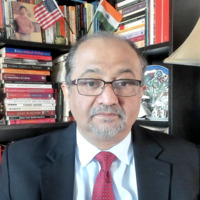
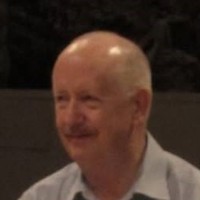
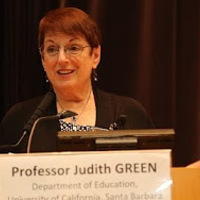
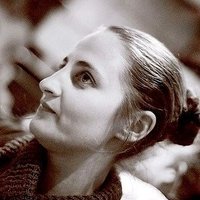





Uploads
Papers by Audrey Osler
In multicultural societies, whose values take precedence?
How do schools resolve tensions between children’s rights and teachers’ rights?
Campaigners, politicians and the media cite human rights to justify or challenge anything from peaceful protest to military action. The phrase ‘human rights’ appears to be a slogan in need of a definition. Human rights education is more urgent than ever.
Teachers and Human Rights Education clarifies the relevance of human rights to teachers’ everyday work. The authors draw on international examples to discuss how schools can work with young people to promote the ideals of justice and peace. Human rights principles are applied to the challenges of living together democratically.
The book contributes to the UN World Programme on Human Rights Education and is a key text for postgraduate studies.
Osler and Starkey are two of the most influential scholars and practitioners of human rights education worldwide. This new volume is timely and highly significant.
Dr Colm Ó Cuanacháin, Amnesty International
Review in Cambridge Journal of Education, June 2011
Students’ perspectives on schooling, by Audrey Osler, Maidenhead, Open University Press, 2010, xii + 172 pp., £60.00 (hardback), ISBN 978-0-335-22359-6, £19.99 (paperback), ISBN 978-0-335-22360-2.
On the back cover, this book is heralded as ‘a must read for teachers, school leaders, educational researchers, and anyone involved with educational policy-making and planning’. I could not agree more. It is an ambitious book which attempts to
reach a wide and varied audience and I believe it succeeds in both reaching its audience and achieving its three stated aims: to examine issues around genuine engagement with the perspectives of children on schooling; to explore schools as
research sites, and the ethical questions that this raises; and to report on research on young people’s view of schooling both in England and north-west USA.
Osler offers a welcome and timely reminder to us all of Article 12 of the UN Convention on the Rights of the Child: that the student is at the core of our work and that they have the right to express their views; for those views to be given due weight; and that they must be offered opportunities to be heard, then goes on to highlight the United Kingdom’s apparent failure to take this duty seriously. Her commitment to emancipatory forms of consultation and participation for students who are treated as ‘persons with agency’ is evident throughout though she
recognises that ‘children as rights-holders challenges a fundamental premise of contemporary mass schooling’. There is no attempt to minimise this challenge for schools in that it is acknowledged that current custom and practice does not favour
the CRC agenda. She also, thoughtfully, raises concerns that student participation and consultation can become disciplinary devices which increase compliance rather than achieve genuine dialogue between the teacher and the taught, so opens up the
issues of power, representation and ethics in research with children.
In outlining the major piece of research which informs the main section of the book, Osler reminds us again that it took place within a national educational culture in which young people’s perspectives are not systematically sought. She states that,
as a society, the ways that we construct childhood contribute to ‘clouding the debates about the autonomy of children and young people’.
The findings are organised in broad themes, looking at context of learning, i.e.,whether schools are fit for children and fit for purpose; learning and teaching, in the classroom in particular; schooling and social justice; and relationships between
teachers and students in schools. The analysis makes use of a children’s rights lens, using the categories of provision, protection and participation, and this throws up a number of stark findings. The study highlights that many students are subject to physical conditions that would be deemed unacceptable for adult workplaces, and that they desire respect, equality and reciprocity regarding relationships with teachers
and adults. Indeed, they desire to have their say.
A distinctive feature of the study is that it collected data in such a way as to consider differences in the ways that students of different gender and ethnicity experience school. This leads to some very interesting and potentially useful findings.
For example, in asking pupils to self-report their ethnicity, a startling difference was discovered between this and the records held by the schools.
One weakness of the study appeared, rather ironically, to be that the questionnaires used in the research were designed and written by local authority staff with no stated input from the students themselves. Osler does comment that, on reflection,
students could have had greater involvement in the earlier stages of the research process, certainly in a reflective capacity. The data gathered, however, offer a rich insight into the perspectives of young people regarding schooling. Table 4.1 on page 44 lists the discussion topics, generated from early questionnaire feedback and used in an online data-gathering exercise. This provides an excellent resource for groups and individuals wishing to explore students’ perspectives.
This is a book, as it says on the cover, which should be embraced by all concerned with the welfare of our young people. While reading it to prepare this review, I have commended it to students and colleagues alike. It is a book to which I will return again and again.
Alison Fox
University of Stirling, UK
alison.fox@stir.ac.uk
Can schools resolve the tensions between demands for effective discipline and pressures to be more inclusive?
Educators, politicians and the media are using the concept of citizenship in new contexts and giving it new meanings. Citizenship can serve to unite a diverse population, or to marginalise and exclude. With the introduction of citizenship in school curricula, there is an urgent need for develoiping the concept of cosmopolitan and inclusive citizenship.
Changing Citizenship supports educators in understanding the links between global change and the everyday realities of teachers and learners. It explores the role that schools can play in creating a new vision of citizenship for multiculural democracies.
Read a review of Changing Citizenship:
http://edrev.asu.edu/reviews/rev600.htm
JAPANESE TRANSLATION: Changing Citizenship has been translated into Japanese and is published in Autumn 2009 by Keiso Shoboo, Tokyo.
http://www.amazon.co.jp/gp/switch-language/product/4326250593/ref=dp_change_lang?ie=UTF8&language=en_JP
CHINESE TRANSLATION: A Chinese edition of Changing Citizenship is currently being prepared and is expected in 2011 (publisher McGraw-Hill Education Asia).
Contributors include Carole Hahn, Colm O'Cuanachain, Hilary Claire, Anne Hudson, Jull Rutter, and Chris Wilkins.
Available in UK/Europe from: http://ioepress.co.uk/books/social-justice-equality-and-human-rights/teachershuman-rights-and-diversity/
Available in the U.S. from Stylus Publishing:
http://www.styluspub.com/clients/TRE/Books/BookDetail.aspx?productID=94503"
The widespread view that girls are succeeding in education and are therefore 'not a problem' is a myth. By drawing directly on girls' own accounts and experiences of school life and those of professionals working with disaffected youth, this book offers startling new perspectives on the issue of exclusion and underachievement amongst girls.
The book demonstrates how the social and educational needs of girls and young women have slipped down the policy agenda in the UK and internationally. The authors argue for a redefinition of school exclusion which covers the types of exclusion commonly experienced by girls, such as truancy, violence and bullying, self-exclusion and school drop-out as a result of pregnancy. Drawing on girls' own ideas, the authors make recommendations as to how schools might develop as more inclusive communities where the needs of boys and girls are addressed equally.
Winner of the 2003 Times Educational Supplement SEN 2003 Best Academic Book Prize
This volume breaks new ground by bringing together and synthesising contributions form practitioners and researchers in language teaching and citizenship. It draws on the work of the British Council in developing education for citizenship and good governance through language teaching.
Language teachers across the workld are increasingly recognising their role as teachers of intercultural communication. Language learning develops skills for communication across cultural boundaries. The quality of communication depends on respect, tolerance and acceptance of basic standards of human rights such as equality and dignity.
This book develops a theory and practice of language teaching and learning for citizenship based on understanding and implementing human rights in education. It explores representations of cultures; curriculum and pedagogical frameworks; issues of eqaulity and diversity. case studires are drawn from a range of learning contexts in Latin America, Europe and Asia and conasider yougn disadvantaged learners; e-learning exchanges; developing critical cultural awareness; civic education and language teaching; women's studies; and empowerment strategies for life long learning.
This book draws on the life histories of school principals, advisors, teachers and student teachers from Black and ethnic minority communities to find out what their working lives are really like. Detailed case studies and the voices of Black teachers bring their stories alive.
The book examines how those in positions of influence are working to transform schools and improve their students' life chances. How do they achieve success and challenge racism? While celebrating Black and minorty achievement in education, this book does not overlook the costs of success to individuals. Drawing on teachers' own accounts of their work, it explores the complexities of their lived experiences and the tensions which can develop between teachers' professional identities and their political identities as Black people.
For information on Japanese translation visit:
http://www.amazon.co.jp/s/qid=1292519539/ref=sr_gnr_fkmr0?ie=UTF8&node=&search-alias=aps&field-keywords=osler%20audrey
In response to the 1999 Macpherson Report on the Stephen Lawrence Inquiry, the Government gave OFSTED lead responsability for monitoring how schools address and prevent racism. This research, undertaken for the Commission for Racial Equality, evaluates how OFSTED is fulfilling that responsability.
Through a meticulous analysis of inspection reports and documents, the researchers reveal how, even where there is compelling evidence of racial inequalities in a school's educational provision, issues concerning ethnic differentials in attainment and exclusion rates, racial harassment or the support provided for pupils who have English as an additional language are rarely reported to teachers, parents and govenors.
From the HMI and contracted inspectors we learn something of the OFSTED culture and how both past and present frameworks, although apparently robust, frequently fail to deliver on race equality. Headteachers and LEA officers in three contrasting local authorities suggest ways in which the school inspection process might be improved so as to contribute effectively to the realisation of racial justice. This report is essential reading for teachers, govenors, researchers and policy makers, and all who are concerned with improving standards and achieving race equality in education.
Professor Audrey Osler is Director of the Centre for Citizenship and Human Rights Education at the University of Leeds
Dr. Marlene Morrison is a lecturer in education (Research Methods) and Deputy Director of the centre for Citizenship Studies in Education.
Trentham Books for the Commission for Racial Equality
... a valuable and timely publication. - Agenda, newsletter of Race on the Agenda
Distinguished speakers include:
• Rector Petter AASEN, Buskerud and Vestfold University College
• Professor Inga BOSTAD Director, Norwegian Centre for Human Rights
• Professor Thor Ola ENGEN Hedmark University College
• Dr Hadi Stømmen LILE, University of Oslo
• Professor Kamil ÖZERK, University of Oslo (to be confirmed)
• Professor Åse RØTHING Østfold University College
• Dr Anne Julie SEMB University of Oslo
Chair: Professor Audrey OSLER, Buskerud and Vestfold University College.
Speakers will address education and nation building; historical and contemporary perspectives: citizenship, minorities, migrants and human rights; and challenges facing educators and schools in today’s multicultural Norway. The aim is to foster critical debate about the role of education in shaping today’s Norway and to reflect on inclusionary and exclusionary forces from a range of perspectives and academic disciplines.
University College of Southeast Norway
Drammen, Norway
12 October 2016
13.30-15.00
Papirbredden 1 Room S4502
University of Rennes, France
Deadline for paper proposals: 27 April 2015